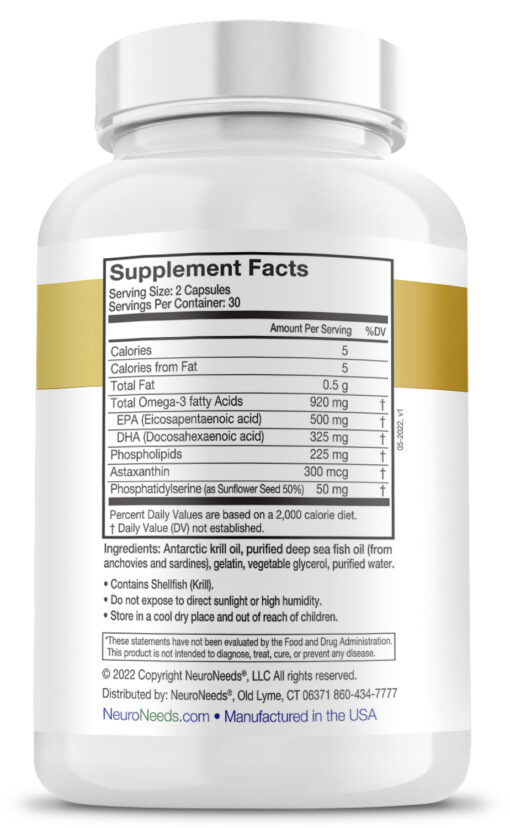$84
ASTAXANTHIN IN OMEGANEEDS®
The Details
What Is Astaxanthin? Astaxanthin is a carotenoid, a group of compounds made by plants, algae, and microorganisms that includes carotene and vitamin A. Astaxanthin is produced naturally by aquatic microalgae. Animals who feed on the algae, such as salmon, crustaceans (e.g., krill, crab, and lobster), and flamingos, obtain astaxanthin which gives them their pink or red color. Astaxanthin is frequently used as a natural food dye and is becoming more commonly recommended as a dietary supplement. In OmegaNeeds®, astaxanthin is naturally present in the krill oil component.
What Does Astaxanthin Do? Astaxanthin is a powerful antioxidant. As such, it likely plays a role in health in many different manners, including improved mitochondrial function and decreased inflammation.
What Does a Astaxanthin Deficiency Appear As? Astaxanthin is not required for humans and dietary deficiency does not exist.
What About Astaxanthin’s Use in Disease? Astaxanthin is relatively new to get attention as a dietary supplement, and few studies have been done. Astaxanthin is sometimes recommended for many different conditions, especially those that are likely to respond to a powerful antioxidant, including:
- Support of the immune system
- Reduction in inflammation and pain
- Protection of skin from ultraviolet (UV) damage
- Repair of brain damage (from injuries, stroke, Alzheimer, etc.)
- Support cognitive health
- Reduce male infertility and menopause symptoms
- Control of blood pressure, cholesterol, and sugar
What Are the Common and/or Important Side Effects of Astaxanthin Astaxanthin is naturally present in seafood and side effects are unexpected at the usual doses used in supplementation. The European Food Safety Authority set an Acceptable Daily Intake of 200 mcg per kg body weight in 2019. Thus, the amount of astaxanthin in OmegaNeeds® (150 mcg) would be considered to be safe in a 2-lb highly-premature newborn.
Order OmegaNeeds® Today
Formulations










